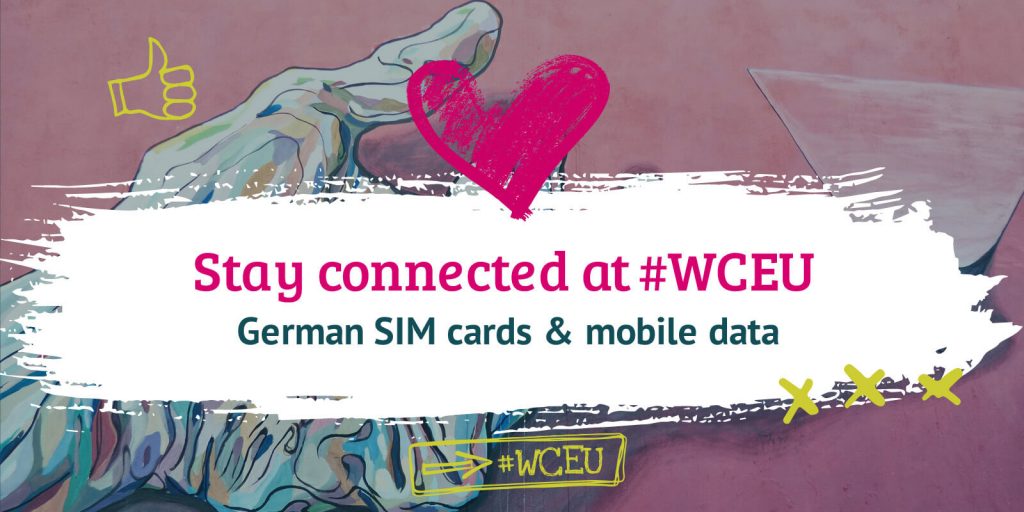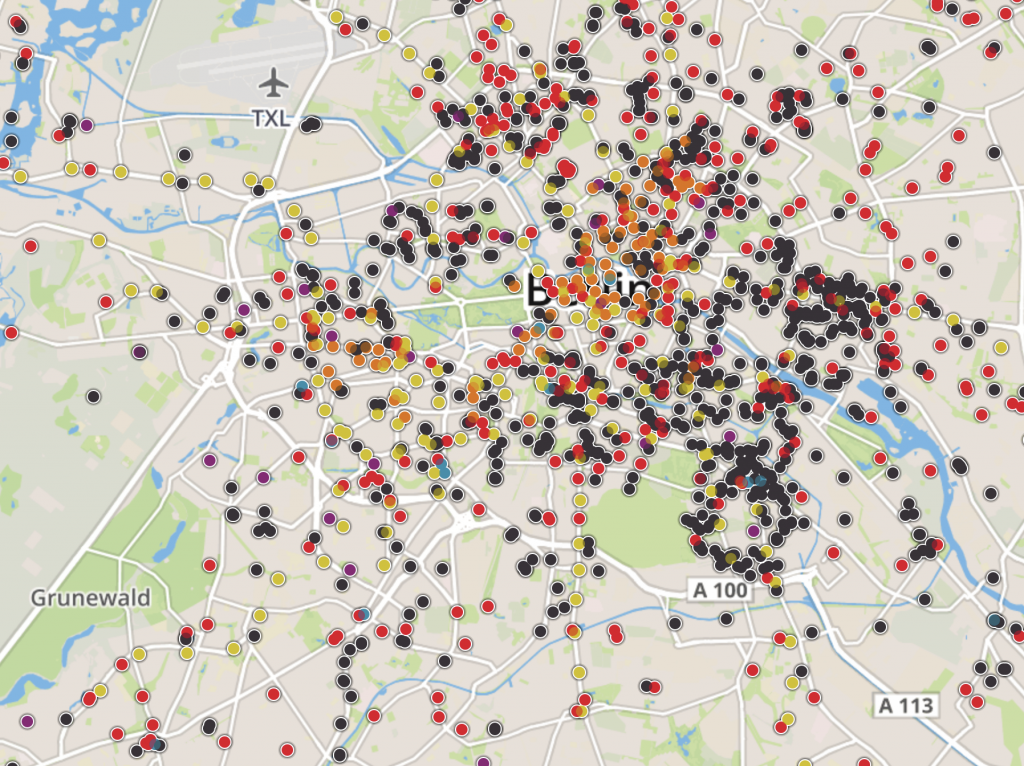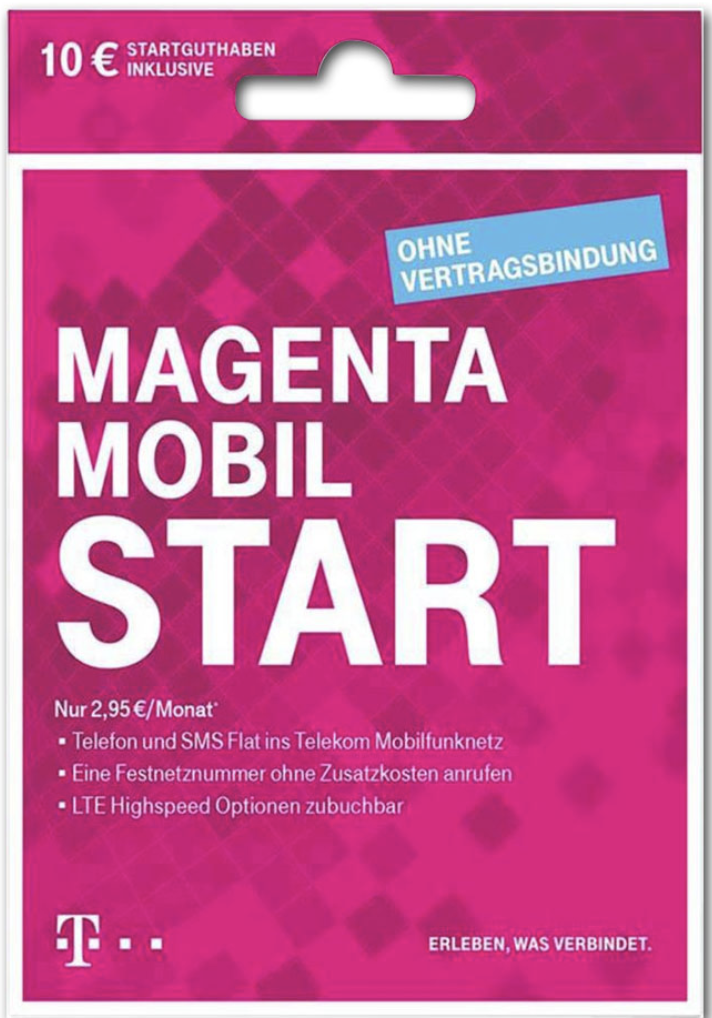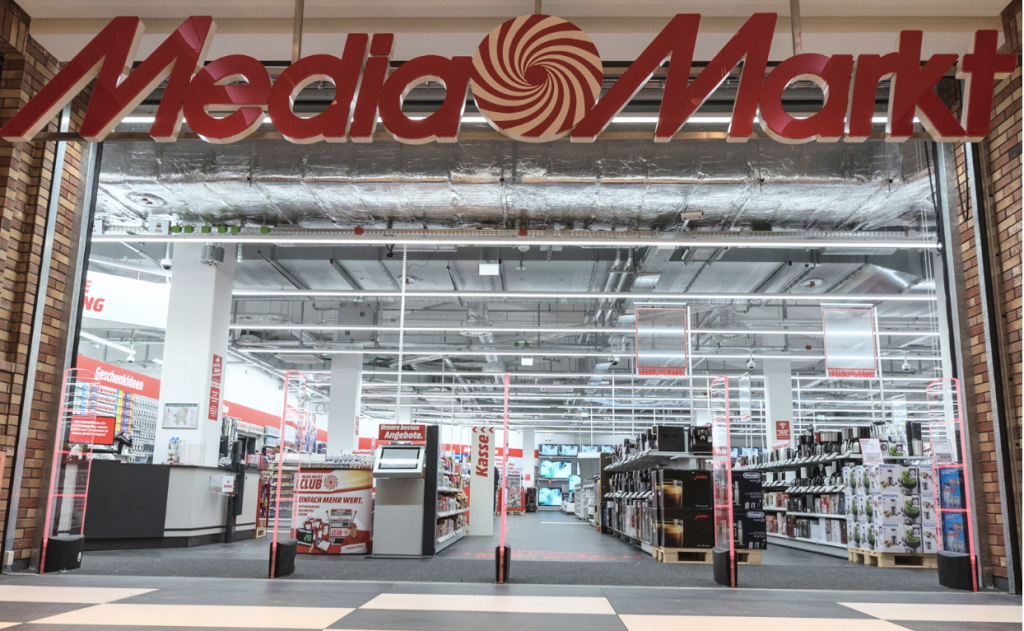
Germany is an EU member and part of the “Roam Like at Home” initiative that took effect on 15 June 2017. Info in several languages can be found at: Roaming Q&A from the European Commission.
Should you already have a SIM card from an EU country, including the UK, you can use minutes, text and data in Germany as you would at home. On entering the country, this is confirmed with a message from your provider along the lines of: “Welcome to Germany! You’re probably expecting a text about roaming charges…”
For everyone else who wants to stay connected while in Berlin for WordCamp Europe, we will help you decide whether a German SIM card is needed, plus how and where to buy one if the answer is yes.

Do you need a German SIM card?
Consider first if you need one, taking into account what’s freely available, length of stay and how you use your smartphone (also called ‘Handy’) and other devices.
Free Wi-Fi
Where will you be? And could the majority of your needs be met using free Wi-Fi?
Free Wi-Fi, typically with no registration, is available at:
- Schönefeld (SXF) and Tegel (TXL) airports
- Train stations Hauptbahnhof (Central Station), Ostbahnhof, Gesundbrunnen, Südkreuz, Spandau
- All U-Bahn (underground) stations on the ‘BVG network’ except Bismarckstraße, Schloßstraße, and Rathaus Steglitz
- Central Bus Stations ZOB and Ostbahnhof
- Regional train stations
- Estrel Congress Center, the WCEU venue
- Hotels and Airbnbs
- Cafes and fast food locations, either free or with a small purchase
It’s possible to download maps and use them offline to navigate to places not included above, such as tourist sites or restaurants.
If your time in Berlin is primarily spent in the locations above, you may not need a German SIM card. Leave Wi-Fi open on your phone to detect available networks, and be sure to turn off data access and national/international roaming to prevent unexpected charges.
Duration
How long are you staying in Berlin or Germany? If only staying a few days for the conference and traveling to/from Berlin, and you have minimal mobile needs not met by free Wi-Fi, look into the possibility of extending your current plan.
For example:
- T-Mobile USA has an International Pass, plus Simple Choice, Magenta and ONE programs for those traveling.
- Vodafone UK has Global Roaming Plus for those going outside the normal coverage area.
You might find something similar. Weigh your options and costs, and don’t be afraid to contact your mobile provider’s customer service with questions. It’s better to be clear and informed than surprised and sorry.
Scenario
Let’s say you land at Tegel airport, need to get a taxi to the Airbnb or hotel and then spend the majority of your time socialising and working at the WCEU venue or your accommodation, want to see the Berlin Wall and go to a biergarten, and back to the airport.
You can use the airport Wi-Fi to communicate with your Airbnb host and get an Uber, or catch a taxi cab outside the terminal and go to the hotel, use the venue Wi-Fi, download maps to navigate to the Berlin Wall and biergarten, use the restaurant Wi-Fi if needed, and then use the hotel/Airbnb Wi-Fi to hail an Uber or taxi and go back to the airport. None of this requires a German SIM card.

Getting a German SIM card
Many who debate getting a local SIM card (also called ‘Handykarte’) are staying in Berlin or Germany for more than a few days, plus one or more of the following reasons:
- Need mobile access everywhere, not just where it’s free – for navigation, for apps, for use as a portable hotspot, for work, for family, for emergencies, for freedom;
- Want to keep the SIM for future use in Germany/EU and know what’s involved in maintaining it;
- Understand the German language, are willing to use Google translate or similar, or know someone who could help. Top-up, online management and network messages are in German. There is no option for English.
Factors to consider when choosing a SIM card:
- Convenience: Where to purchase and how to activate
- Speed
- Cost
- Coverage
Read on to get the details.
German mobile service providers
There are three main providers:
- Telekom aka T-Mobile: Best coverage, fastest speed (4G/LTE), good service, most expensive, reported to be selective when accepting passports, e.g., preferring those from Australia, US, Canada, China
(congstar, ja!, Lebara) - Vodafone: Second-best coverage, fastest speed (4G/LTE), known brand name, good service, mid-range cost.
(Fyve, Lidl Connect, Lycamobile in English, Otelo, Rossmann Mobil) - O2: Better coverage since merger with E-Plus, variable service and speed, least expensive, most flexible in accepting identification/passports from all countries.
(ALDI TALK, blau, K-Mobil, NettoKOM, Ortel in English, Tchibo, WhatsApp SIM, yourfone)
All other mobile offerings are resellers (listed in parentheses) who are using main providers on a sometimes slower 3G network and offer little or no customer service if you need assistance.
What you need
- A compatible device that is unlocked and has the correct band of 800/900/1800 mHz. Not sure? Check your device at: Frequency Check
- 20 euros in cash, in case some stores do not accept cards
- Passport
- German address: Address of your hotel, hostel, Airbnb or friend
The last two are needed for identity verification, after which your SIM card is unlocked and activation is complete. This is required due to a counter-terrorism initiative in effect since July 2017.
Activation
There are three ways to verify your identity, but availability depends on which SIM you select and where you buy it.
- In person: Verification completed at time of SIM card purchase. Fastest activation, usually within 15-30 minutes.
- WebID/VideoID/OnlineID: Verification done by completing an online form, submitting a copy of your passport or presenting your passport via video. Activation varies – some report a few hours; others say up to 48 hours.
- Post Ident: Fill in a form and present your passport at the post office, which is then forwarded. Slowest activation, depends on mail delivery.

Where to buy a SIM card
There are lots of places to buy a SIM card, and we’ve listed them along with pros and cons of each.
- Tegel (TXL) Airport: Capi Electronics in Terminal A is open from 6:00-21:00 daily. Staff speak English and other languages, fast activation, has options from different providers but perhaps not the best prices. There are no shops in Schoenfield (SXF) Airport.
- Direct from Telekom, Vodafone and O2: Many locations around Berlin, open during normal business hours, staff likely speak English or another language, fast activation, but only has options from their own brand.
- Saturn and Media Markt: Many locations, longer hours than Telekom/Vodafone/O2, staff speak English or another language, fast activation, have options from all providers for a range of price points.
- ALDI, Kaufland and Lidl supermarkets: Younger people speak English, you need to activate yourself online in German via WebID/VideoID/OnlineID, and time to activation is variable (some report a few hours, some up to 24-48 hours), only have options from their brand. REWE supermarkets have top-up cards for several brands.
- Rossmann drugstore chain, kiosks, gas stations: Many locations, you need to speak German, activation unspecified, options are varied.
- Tchibo coffee store chain: A few locations, staff may only speak German, activation time depends on knowledge of person helping you, only has Tchibo Mobil ‘Prepaid SIM’ option (do not get Smartphone SIM).
- Online: Cheaper and convenient if you plan ahead and have an address in Germany because you complete activation online so the SIM is unlocked and sent. However, offers posted online are usually only in German and not the most current.
What to buy
What we recommend: Go to a Saturn or Media Markt location, tell them that you need a prepaid SIM card starter pack with X GB of data (how much is typical) for X days (how long you’re staying), and have them show you some options.
Between 1-2 GB of data in combination with free Wi-Fi is sufficient for most people staying a week or less, unless planning to watch or work with a lot of videos and/or images. Heavy users may want to check out Pro 7 Surf Stick, which measures by time and not by volume.
Going to a large chain store ensures you find staff speaking different languages, lots of choice, good prices, acceptance of cards and cash, fast activation and customer support if you need assistance.
Sometimes the SIM card is activated but you need to turn your device off and back on again so it re-sets and recognises the swap.
UK SIM card: There’s also a non-German option if you or a friend are stopping in or living in the UK. A Vodafone prepaid SIM card can be bought at the airport, activation is immediate, everything is in English and can be managed online.
A Big Value Bundle costs 10 GBP and gives you 3GB of data, unlimited text and 250 minutes. Service is discontinued at the end of a month if you don’t have credit on your account and can also be reactivated when you need it.
Whether you decide to roam like at home, roam free or roam everywhere, there are options to stay connected during your time at WCEU, around Berlin and beyond.

My personal congratulations to the author of this article! Excellent article!